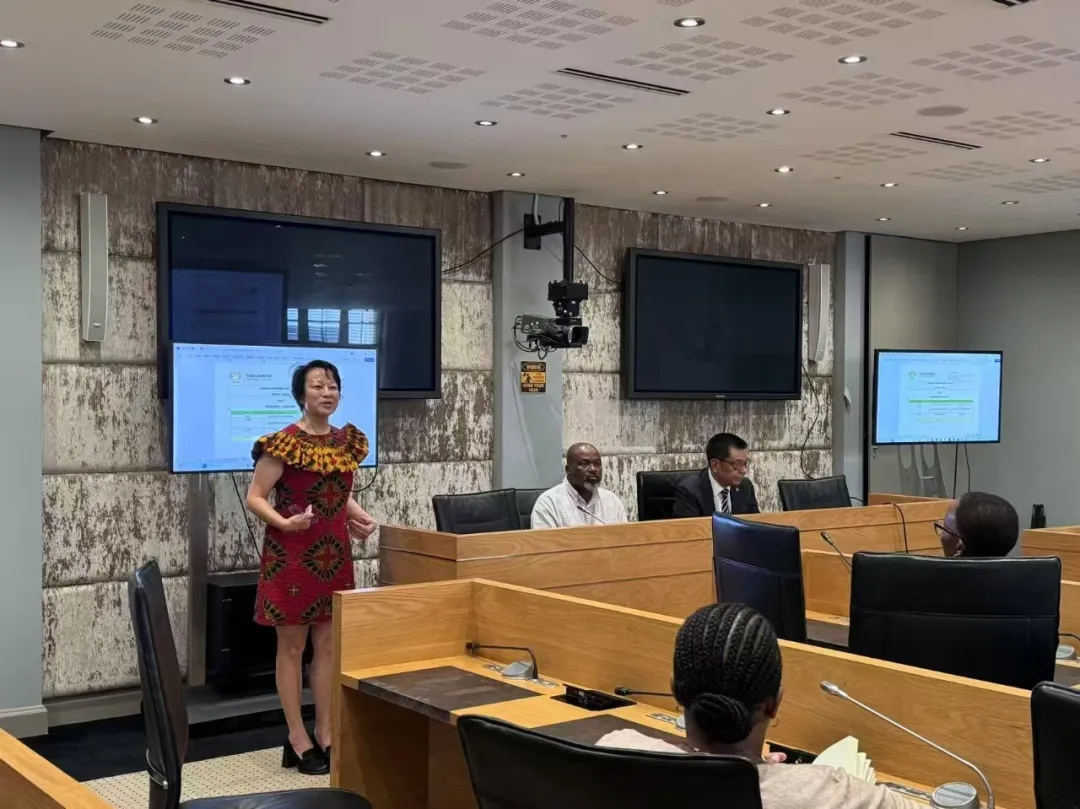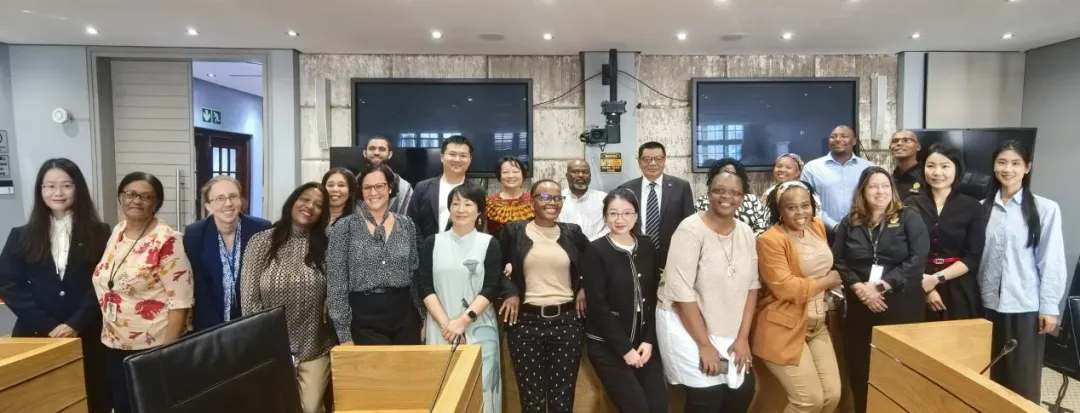On March 24, 2025, the opening ceremony of “the First Chinese Language + Traditional Chinese Medicine Program for the South African Parliament” was held in the Marks Building of the South Africa Parliament in Cape Town. Dumisani Sithole, Division Manager of the International Relations and Protocol of the South African Parliament, You Wenze, Consul General of the People’s Republic of China in Cape Town, and representatives of Confucius Institute for Chinese Medicine at the University of the Western Cape in South Africa (CIUWC) were all present and witnessed this important moment.
In his speech, Sithole emphasized that the South African Parliament gave particular attention to exchanges and cooperation with China. He noted that the new program allowed parliamentary staff to learn Chinese and deepened their understanding of traditional Chinese culture. He also expressed his personal interest in traditional Chinese medicine acupuncture. Sithole stressed that as relations between China and South Africa continue to strengthen, improving Chinese language proficiency and knowledge of TCM will contribute to more effective cooperation between the two countries in cultural, medical, trade, and economic sectors.
You Wenze highlighted that language is a fundamental bridge for people-to-people connectivity, while traditional Chinese medicine (TCM) embodies the essence of Chinese wisdom. As a treasure of the Chinese nation, TCM has safeguarded people’s health for thousands of years. He noted that this program can not only give South African parliamentary staff a platform to learn Chinese but also enable them to systematically understand the core principles of TCM, further promoting mutual learning and exchanges between China and South Africa in healthcare, education, and other fields.
This program was jointly designed by Zhejiang Normal University (ZJNU), Zhejiang Chinese Medical University (ZCMU) and CIUWC. Combined with the professional needs of South African parliamentary staff, it integrates practical Chinese, diplomatic Chinese for governmental affairs and TCM culture. Besides basic language training, the four-month program also features special topics on traditional Chinese medicine, such as the basics of acupuncture and massage, traditional Chinese health preservation concepts, tea therapy, and food therapy, to help participants gain a deeper understanding of traditional Chinese medicine wisdom while learning Chinese and enhance cross-cultural communication skills.


 International Relations Office
International Relations Office International Education College
International Education College








